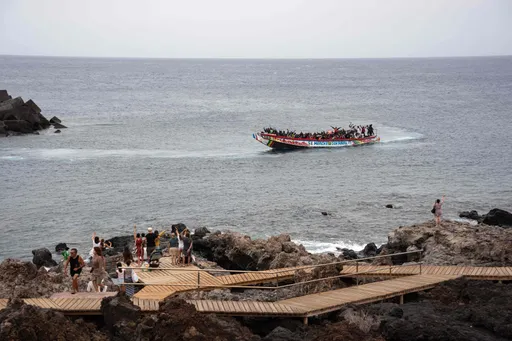Earlier this month, Turkish President Recep Tayyip Erdogan announced suspension of bilateral ties with Greece over what he described as “militarisation” of islands on the eastern Aegean Sea in violation of international agreements.
In hard-hitting comments, Erdogan later reminded Athens about the Turkish war of independence when the Turks had defeated the combined military of the occupying forces that included Greece.
Greece claims that its actions are within the purview of global norms and that it had the right to act in self-defence. On the other hand, Türkiye insists that Greece has violated international treaties and its obligations under international law.
But what do the international treaties say about the demilitarised status of the islands? A closer look at the rules of international law and provisions of international treaties that regulate the demilitarised status of the islands disprove Greece’s claims and show that Athens is indeed violating international law.
For a clear picture, the group of islands can be grouped into three, considering the international treaties that regulate their legal status.
North-eastern Aegean Islands and Central Aegean Islands
As per Article 13 of the Lausanne Peace Treaty (1923), any naval base and fortification cannot be established on the islands of Lesbos, Chios, Samos, and Nikaria. Considering these restrictions’ purposes, namely ‘ensuring the maintenance of peace’ and preventing attempts for aggressive preparations, Article 13 implies these islands’ demilitarisation, which includes not establishing an army base, naval base and air base.
In addition to those restrictions, Article 13 stipulates that “the Greek military forces in these islands will be limited to the normal contingent called up for military service”. ‘Normal contingent’ implies that Greek military forces on these islands could consist only of people from these islands who can be conscripted for an officially determined duration, which is presently between 9 to 12 months.
Moreover, the number of police and gendarmerie will be in proportion to the number of those existing in the rest of Greece. Therefore, having police and gendarmerie forces is limited to the purpose of keeping peace on these islands.
Lemnos and Samothrace
Article 4 of the Lausanne Convention Relating to the Regime of the Straits (1923) requires demilitarisation of the islands of Lemnos and Samothrace. Within the scope of demilitarisation, no fortifications, no permanent artillery organisation and no military aerial organisation are allowed on these islands. Moreover, no armed forces shall be stationed except the police and gendarmerie forces that are necessary for the maintenance of order.
Greece claims that the Montreux Convention Regarding the Regime of the Straits (1936) terminated the Lausanne Convention, and since the Montreux Convention does not have any provision regarding demilitarisation of Lemnos and Samothrace, the rule on demilitarisation does is no longer valid for these islands.
First and foremost, however, the Montreux Convention does not have any explicit provision that indicates ‘termination’ of the Lausanne Convention.
Secondly, the subject and scope of the Montreux Convention are not the same as the Lausanne Convention’s. Therefore, since the termination of the Lausanne Convention would mean leaving some issues unregulated, it is difficult to infer ‘termination' of the Lausanne Convention from the wording of the Montreux Convention.
Finally, the Montreux Convention aims at regulating the status of straits and ensuring Türkiye’s security. Also, the legal status of Lemnos and Samothrace is determined differently under the Lausanne Peace Treaty than the legal status of the areas under Türkiye’s sovereignty. For these reasons alone, even if the Montreux Convention ended the demilitarised status of some areas under Türkiye’s sovereignty, it is reasonable to expect the continued demilitarised status of Lemnos and Samothrace.
The Dodecanese Islands
The Dodecanese Islands include Stampalia, Rhodes, Calki, Scarpanto, Casos, Piscopis, Nisyros, Calimnos, Leros, Patmos, Lipsos, Symi, Cos and Kastellorizo. Article 14 of the Paris Peace Treaty (1947) sets forth that these islands shall be and shall remain demilitarised. The demilitarisation provision prohibits any naval, military, air installations, fortifications and armaments in the territory and territorial waters concerned.
Considering the relevant treaty provisions, it is obvious that Greece’s breach of these provisions is a violation of international law. Moreover, the Paris Peace Treaty establishes an objective regime regarding the demilitarised status of these islands. Therefore, contrary to Greece’s claims, Türkiye has the right to demand that the demilitarised status of these islands be respected.
Are Greece’s claims justified?
Greece claims that provisions regarding demilitarisation of the islands lost their raison d’être and there is a change in circumstances. Therefore, the demilitarisation provisions are no longer applicable. Moreover, Greece claims that militarisation of the islands falls within its right to self-defence, therefore it is in compliance with international law. However, there is no legal basis for such claims.
Greece claims that there was a change in the conditions when the islands’ demilitarised status was determined. Because, afterward, Greece and Türkiye signed treaties of friendship and both countries joined NATO. Since those reduce the high risk of military confrontation and constitute the raison d'être of demilitarisation, there is no justification in the clause that calls for disarming the islands.
However, Greece’s claims are not valid since the conditions necessary for ending the demilitarised status does not apply. Because, first of all, there has to be a fundamental change to end the demilitarised status of islands. But the fact that the relationship between the two countries is getting better is not a fundamental change. Similarly, NATO membership does not constitute a fundamental change that would eliminate the high risk of military confrontation.
Second, such changes do not radically transform the extent of parties’ obligations as would be necessary.
Lastly, the existence of those circumstances did not constitute an essential basis for Greece and Türkiye to be bound by the Lausanne Convention and other treaties that include provisions to regulate the demilitarised status of islands. Because all of these were multilateral treaties and conventions that address not only relations between Greece and Türkiye but also bilateral issues between other signatory countries, such as Türkiye’s borders, Ottoman loans, or minorities.
For these reasons alone, Greece cannot change the islands’ demilitarised status.
Claims on self-defence
The exercise of the right of self-defence in international law is subject to limitations. As per Article 51 of the UN Charter, if an armed attack occurs against a country, a country has a right to self-defence until the UN Security Council takes measures.
Considering this, Greece’s claims are not in compliance with international law. Athens bases its right to self-defence on alleged violation of the Greek air space and Türkiye’s maintenance of military units, aircraft and a landing craft on the coast of Asia Minor. However, it is not possible for these events to qualify as an armed attack since there is no physical hostility between the two countries.
The right to self-defence can be exercised for a limited time, i.e., until the UN Security Council takes necessary measures. Therefore, Greece, claiming to exercise the right to self-defence, cannot arm the islands with military might for an indefinite time.
For all practical purposes, Athens’ claims on the Aegean Islands hold no water. All evidence points to it.























